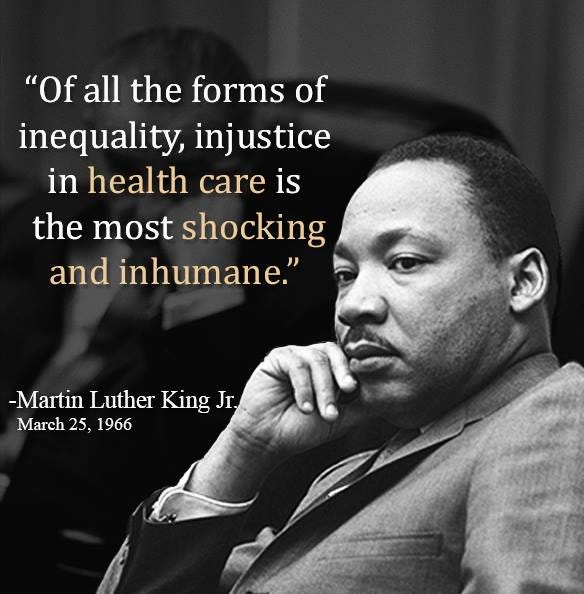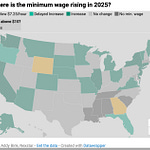
It’s easy to think that if you have health insurance, you will not have medical bills to pay out of pocket — isn’t that why you’re paying those hefty premiums? Unfortunately, medical bills, regardless of insurance coverage, often turn into medical debt. According to a 2022 CNBC article, over 55% of all adults in the United States have some medical debt, and at least half of that number have over $10,000 in debt from unpaid medical bills. This article also explains why, despite insurance, medical bills often become debt —it’s because so many people cannot afford the high deductibles, high premiums costs (even when subsidized on the Affordable Care Act Exchange) and the “highest in the industrialized world” drug prices.
Let’s start with monthly premium costs and deductibles. If you are a married couple and make over $73,240 combined, you are not eligible for any government subsidies for your health insurance premiums on the Affordable Care Marketplace. Say each person in this couple has what today is considered a lower-wage job, making about $40,000 a year, totaling $80,000 in combined Adjusted Gross Income. This couple gets zero health care subsidies from the federal government. By the way, if you earn $40,000 per year, you are making roughly, between $20-$21 per hour and working 40 hours a week. Obviously, one or both individuals of this couple may have health insurance from their employer, but many workers do not because they are self-employed or gig workers… or their employers classify their jobs as ineligible for health insurance to save costs.
Without premium subsidies given in the form of tax credits, the average monthly premium for this couple is $834 (I’ve chosen their age as 30, because the lower your adult age, the lower the premiums). And the average deductible, which must be paid out of pocket before insurance kicks in, is anywhere from $2,000 to over $4,000, depending on the type of plan and insurance company. Generally, the higher the monthly premium, the lower the deductible, and the lower the monthly premium, the higher the deductible.
On the positive side, there are at least two, major benefits provided by the Affordable Care Act that consumers did not have before:
You can receive most preventive care, like annual physicals and more, depending on your gender, without having to meet the deductible (although you are responsible for co-pays and of course, prescription drugs); and
You cannot be turned down for healthcare coverage or required to pay higher premiums for any pre-existing conditions.
According to an October 2022 report by the Kaiser Family Foundation (KFF), even with employer provided health insurance, a family pays an average of over $6,000 annually toward premiums and still has co-pays, co-insurance payments and an average of nearly $2,000 for a deductible.
Given the low income threshold for premium subsidies, co-pays, deductibles in the thousands of dollars per year and the good possibility of co-insurance payments, you can better understand why average working Americans can easily accumulate medical debt, regardless if their health insurance is provided by their employer or purchased on the ACA exchange.
Talking in generalities and using statistics, however, is not usually the best way to illustrate a point. But examining a real-life scenario with real people helps more of us understand how economic issues in particular, affect us all. A recent ProPublic article does exactly that, but its’ focus is not on our country’s health insurance system, but rather the usury interest rates on car title loans. This investigative report examines the car title “pawn business”, legal in Georgia and several other states, and focuses on a few individuals caught in its debt cycle, a business model described as “obviously immoral but not illegal”.
One man mentioned in the story had just retired at age 63 and was looking forward to spending time with his wife, children and grandchildren at their family home in Savannah. Unfortunately, his wife became gravely ill and accumulated thousands in medical bills, presumably not paid under their health insurance. For unexplained reasons, he was unable to refinance his home to pay off this debt, and desperate, he pawned the title to his truck in exchange for about $10,000 in cash. His monthly loan payments totaled a bit over $1,000, but he had not been told these payments only covered the triple digit interest rate charged for the pawn of his car title. Four years later, his wife had died, and he had paid nearly $25,000 in interest and nothing toward the principal balance. Even after declaring Chapter 13 bankruptcy, he was forced to pay back this “loan” in full and at the original terms because Georgia law deems title pawn businesses to be secured creditors.
Neither medical bills nor medical debt should exist in the United States in the twenty-first century. We do not need health insurance of any kind or cost, what we need is quality health care. If you are not wealthy enough to pay the exorbitant costs to for-profit companies to keep you alive and relatively healthy, you are punished with debt, bankruptcy and even your life or those of your loved ones.
As one of my readers eloquently stated in the comment section of this newsletter:
I'm poor because I was "treated" to a long illness that ended with a transplant surgery. Over 11 long years. My trajectory was never to "rich" or anything close to that. I knew I was from the middle class - and that was fine with me. But when you're struck down by dire health issues, you are pretty much DONE.
Senator Bernie Sanders (I Vt.), has been tirelessly fighting for government run health care his entire career, and he’s not stopping now. This year, he and 14 other senators again introduced a “Medicare for All” bill to the Senate. This proposed bill also upgrades our current Medicare system to include vision, dental and hearing aid coverage.
…It is not acceptable to me, nor to the American people, that over 70 million people today are either uninsured or underinsured. As we speak, there are millions of people who would like to go to a doctor but cannot afford to do so. This is an outrage. In America, your health and your longevity should not be dependent on your wealth. Senator Bernie Sanders’ comments at the introduction in the United States Senate of the Medicare for All Act of 2022 May 12, 2022
What might convince you that our country needs at least Medicare for All — the steadily rising cost of health insurance premiums and deductibles, that millions of people are overwhelmed with medical bills and debt, the personal stories of people whose lives are ruined by getting sick? Or nothing at all?
I’d love to hear your thoughts in the Comment Section below. All comments are welcome!
As always, I appreciate your interest and thoughtful ideas that make our Crime and Punishment community a welcoming space to visit and chat. There’s no time like the present to become a free or paid subscriber—thanks in advance for your support!













Share this post